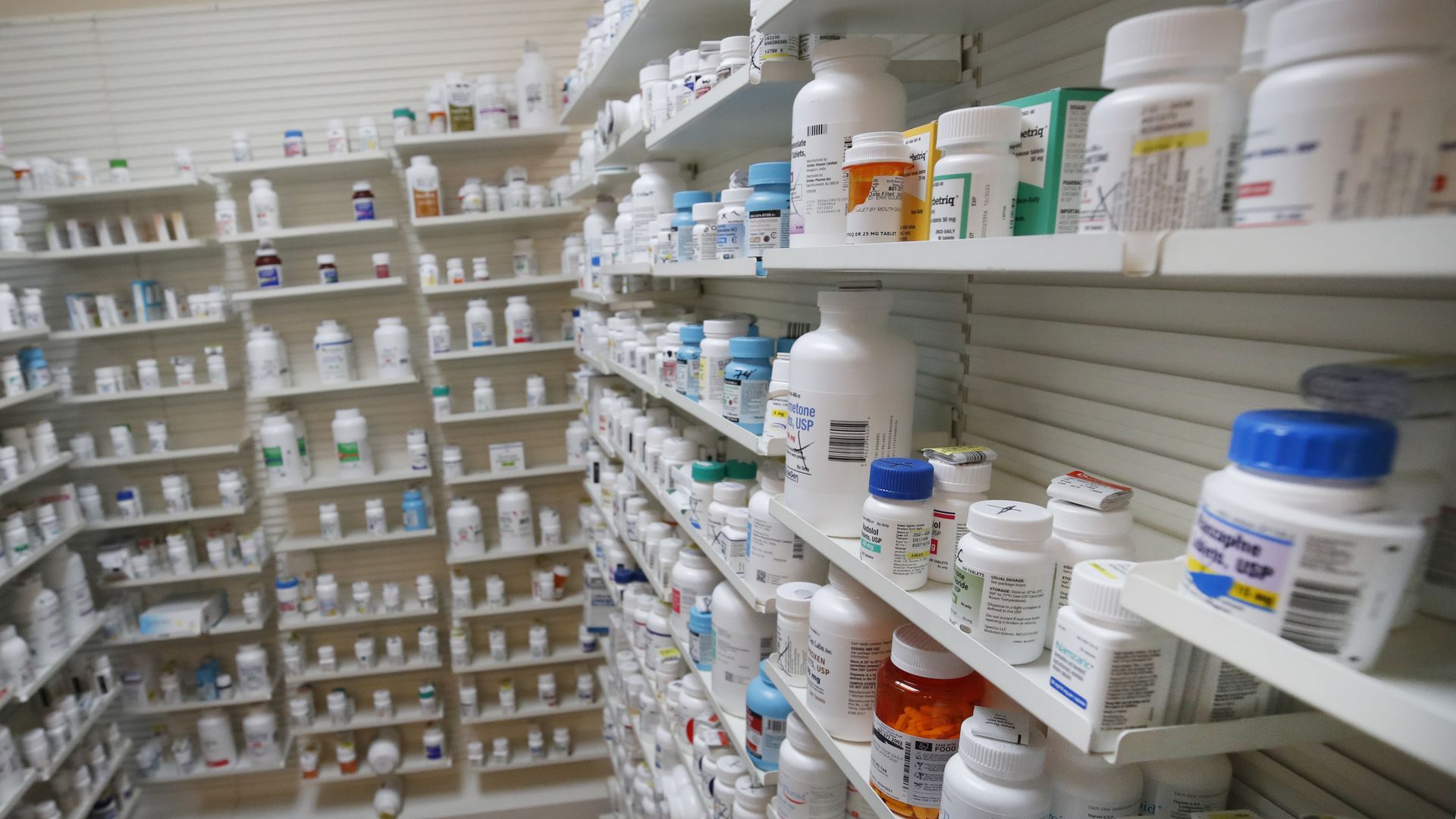Feb 15, 2022 - Health
The growing evidence against drug copay cards
Add Axios as your preferred source to
see more of our stories on Google.

If there is a brand-name drug on this shelf, odds are its maker offers a coupon. Photo: George Frey/AFP via Getty Images
